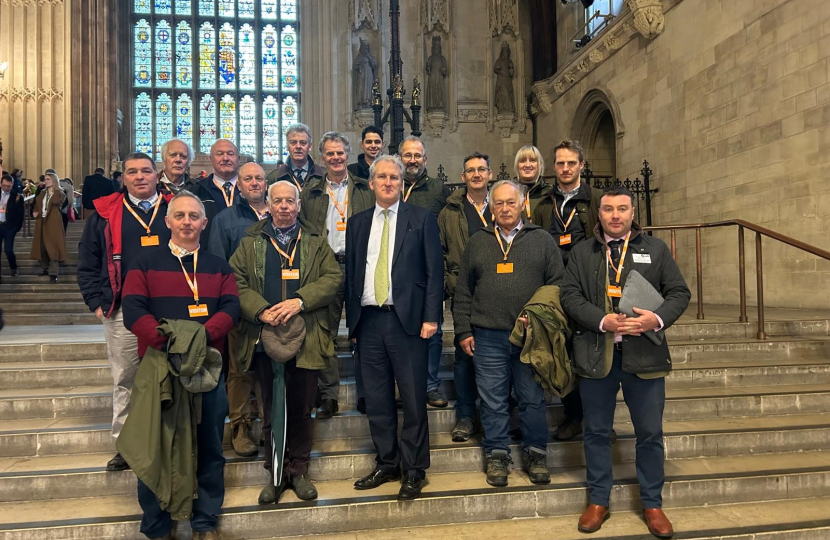
Last week I met a group of farmers in Westminster Hall. They had all travelled up from East Hampshire to stand alongside fellow farmers from across the country to protest against the government’s ‘Family Farm Tax’.
In his Church House address, National Farmers’ Union (NFU) President Tom Bradshaw described the Chancellor’s decision to change inheritance tax rules as a ‘stab in the back’ for farmers and ‘the straw the broke the camel’s back’.
The people I met are not owners of vast estates sitting on large pots of money, but farmers trying to make a reasonable living from the land. One farmer in the constituency told me that he is facing a potential inheritance tax bill of hundreds of thousands of pounds from April 2026 should his parents die and pass on the farm to him. He would have no choice but to sell up. This is a farm currently making just a small annual profit. The sums just don’t add up.
We rely on farmers for so much – looking after the land, encouraging biodiversity, and of course, our food.
Yet, instead of prioritising agriculture in the recent budget, the government has decided to land the sector with a huge tax bill; going directly against promises made to the NFU that this is something they would not do.
What the farmers are protesting about should matter to all of us.
It is in the national interest to get as much food from our land as possible.
We currently import about half of all the food we consume. If the last few years of fluctuating food prices have taught us anything it’s that increasing the amount of food we produce on our home soil should be a priority.
The government should be setting an ambitious target to grow more and be more self-sufficient. They should also be giving our farmers the support they need to be able to do so – including on rural crime, making sure supermarkets are paying a fair price and protecting high food standards in future trade negotiations.
What we have seen so far tells us that the government doesn’t really understand farmers or the rural economy.
This tax will cripple our traditional family farms in a way that is untenable for many.
Forced to sell, we may see swathes of the farming land in East Hampshire opened up to investors who may be less inclined to use it for growing crops or rearing livestock. This would be a tragedy for those families who have run those farms for generations and, if repeated across the country, catastrophic for food production in the UK.
Our local farmers need our support, the government need to think again.



